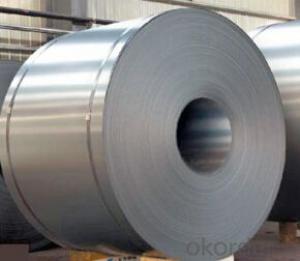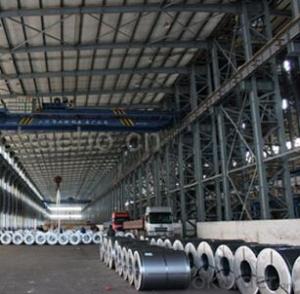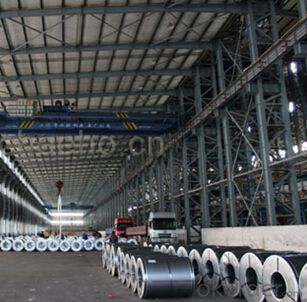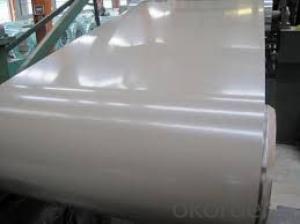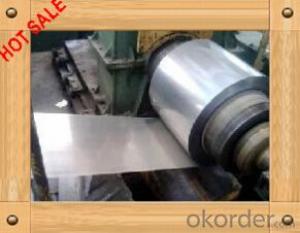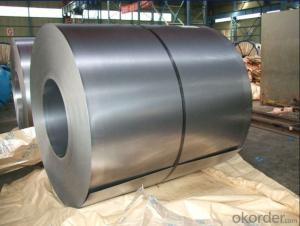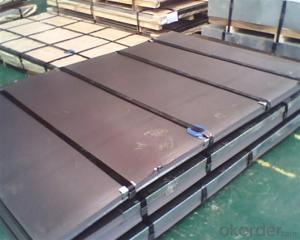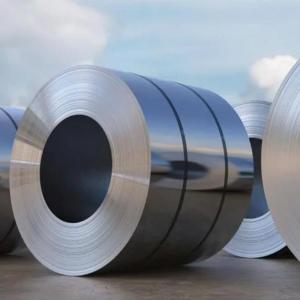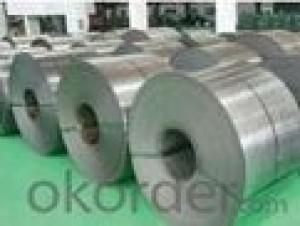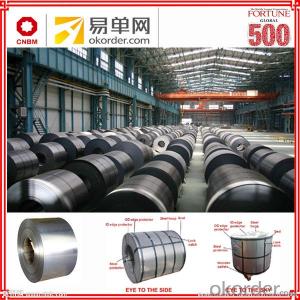Cold Rolled Steel (DC01) for Building Material
- Loading Port:
- Shanghai
- Payment Terms:
- TT OR LC
- Min Order Qty:
- 25 m.t.
- Supply Capability:
- 10000 m.t./month
OKorder Service Pledge
OKorder Financial Service
You Might Also Like
Basic Info.
Model NO.:Dc01
Technique:Cold Rolled
Standard:EN
Steel Grade:DC01
Export Markets:Global
Additional Info.
Trademark:CWG
Packing:Standard Seaworthy Packing, Bundle or Pallet
Standard:EN
Origin:China
HS Code:72099000
Product Description
1.Surface : General, Bright, Dull and Mirror finish, oiled or unoiled
2.Thickness: 0.1mm-3.5mm
3. Width:1000mm,1250mm, special width
4. Provide original mill test certificate and original production certificate of these standards
5. Coil ID: 508mm. 610mm
6. Coil weight: 4-15MT as per client's requirement
7. Trade term: FOB/ CIF/ CFR
8.Application:Construction filed, shiping building industry, petroleum&cheical industry, war and electricity industries, food processing and medical industry, boiler heat exchanger, machinery and hardware fileds.
Cold Rolled Steel is steel that has been worked below its recrystallization temperature by passing it between a pair of rollers. Recrystallization temperature is the temperature at which grains in the lattice structure of the metal have been rearranged, leaving it free of strain and deformations. Cold Rolled Steel is pre-treated before being cold rolled with a process known as pickling, which uses strong acids to remove scale and other impurities. The Cold Rolled Steel is then passed through rollers to reduce its thickness. Most cold rolling takes place in multiple passes and as the size of the Cold Rolled Steel is further reduced, its strength and hardness both increase, but its ductility decreases. After cold rolling, heating the metal up in a process known as annealing can restore some of its ductility. The final Cold Rolled Steel coil may be manufactured in the form of sheets, strips, bars, or other forms
- Q: Are steel coils resistant to rust and corrosion?
- Steel coils exhibit resistance to rust and corrosion. Typically, these coils are crafted from either carbon steel or stainless steel, both of which possess exceptional properties for combating corrosion. Carbon steel coils are frequently coated with a protective layer, such as zinc or a polymer coating, to augment their resistance to rust and corrosion. Conversely, stainless steel coils possess inherent corrosion-resistant qualities due to the presence of chromium. This element creates a protective oxide layer on the steel's surface, effectively preventing rust and corrosion. Nonetheless, it is crucial to acknowledge that the extent of resistance may also hinge on the specific grade and quality of the steel employed in the coils, as well as the environmental conditions to which they are exposed.
- Q: How do steel coils contribute to the agricultural sector?
- Steel coils contribute to the agricultural sector in various ways. Firstly, steel coils are used in the manufacturing of agricultural machinery and equipment such as tractors, harvesters, and irrigation systems. These machines are essential for efficient farming operations, helping farmers increase productivity and reduce labor costs. The strength and durability of steel coils ensure that the machinery can withstand the harsh conditions of the agricultural environment. Additionally, steel coils are used in the construction of storage facilities and warehouses for storing agricultural products. These structures need to be strong and resistant to external elements to protect the crops from damage. Steel coils provide the necessary strength and stability required for constructing these storage facilities, ensuring the safe storage of agricultural produce. Furthermore, steel coils are used in the fabrication of fencing and other agricultural infrastructure. Fencing is crucial in protecting crops from animals and preventing trespassing. Steel coils provide a robust material for fencing, ensuring the security and protection of agricultural lands. Moreover, steel coils are utilized in the production of irrigation pipes and systems. Efficient irrigation is vital for the growth and yield of crops, especially in areas with limited water resources. Steel coils are used to manufacture pipes that can withstand high pressure and are resistant to corrosion, ensuring the efficient distribution of water throughout the agricultural fields. In summary, steel coils play a significant role in the agricultural sector by providing the necessary materials for manufacturing machinery, constructing storage facilities, fencing, and irrigation systems. The strength, durability, and resistance to harsh conditions make steel coils an essential component in enhancing agricultural productivity, protecting crops, and ensuring efficient farming practices.
- Q: I received a very nice set of stainless steel cookware as a wedding gift. While very pretty, Im finding them almost useless for cooking. Everything sticks, they're difficult to clean, and Im using my old non-stick pans instead. Should I simply leave the stainless out for decortive purposes, or are stainless steel pans better for some applications?
- I can't understand why you're having difficulty. My pans are as good as the day they were bought.I would never return to non-stick after having my stainless steel pans! Non stick coatings come off in the food-yuk! What are you cooking in them? Are you trying to wash them in the dishwasher? That never works well. I always put water in mine if I've done a custard or stew, beans or things like that, for a little soak before washing by hand in hot soapy water. They really are great even when I have burnt something, because you can scrape the burn with a sharp implement and you do no damage at all to the pan. I highly recommend them.
- Q: Is steel easier to weld?Which is more brittle/less flexible?
- You should not attempt to do any traditional welding of steel to aluminum as they can form a hard and brittle inter metallic compound known as iron aluminide. You would have to employ a process that did not melt either species. Cladding could be an option but you are kind of limited to flat products that are sandwiched together. There is also explosive which does almost the same thing as cladding. Friction stir welding might be possible but I cant vouch for that. The temperature does get pretty hot, so I am not sure what would happen. But any of these suggestions would take specialized equipment not available to the average user. For weight, Al is 2.7 g/cc and Iron is about 7.8 so it is about 3 times heavier for the same volume. How strong either of them are greatly depends on specific alloys and heat treatment. I think some of the strongest aluminum alloys have a yield strength of about 50,000 psi which would relate to a relatively weak steel. For steel, there are alloys that can have yield strengths in the hundreds of thousands psi.
- Q: How are steel coils used in the production of shipbuilding components?
- Steel coils are used in the production of shipbuilding components as they are the primary raw material for manufacturing various structural and mechanical parts, such as hulls, decks, bulkheads, and frames. These coils are unwound, cut, shaped, and welded to form the required sections and profiles, providing the necessary strength and durability to withstand the harsh marine environment.
- Q: i got a strip of steel from lowes how to sharpen it its not that thick its kinda slim but its heavyish its around 4'2 feet tall i cant get a whetstone or anything elsei have a brick , sand paper , and a hammer and some charcoal i was heating it up and trying to pound a edge into italso how to cut the steel to make a pointy curved tip any help appreciated and please tell me easy methodsplus its not sharp at all
- Comp is right- Lowe's sold you mild steel. Good for a lot of things, but holding an edge isn't one. If you want to make some sort of edged tool, try something like Smokey Mountain Knife Works or another online vendor. They have better blades, even some Damascus blades which will hold an edge much better. If you want to make your own blades, you'll need to start with better steel and build your own forge. I made one from a brake drum and a vacuum with a dimmer switch. You'll also need an anvil, something that may be a bit tough to locate. A couple of hammers and you can start forging blades. For something simpler, locate a place where you can learn blacksmithing and forging. Some art classes teach this at a community college, but not many. Check the site below and see if you can go with ABANA. ... Good luck!!
- Q: How are steel coils used in the production of shipbuilding materials?
- Steel coils are used in shipbuilding materials as they provide a versatile and durable solution. They can be processed into various shapes and sizes, including plates, beams, and sections, which are essential components for constructing ships. The coils are often cut and shaped to fit specific design requirements, offering strength and structural integrity to the ship's framework. Additionally, the coils are utilized in the fabrication of various shipbuilding components, such as hulls, decks, bulkheads, and superstructures, ensuring the vessels' resilience and stability.
- Q: How do steel coils impact the overall cost of production?
- The overall cost of production in various industries is greatly affected by steel coils. Initially, the expense of the steel coils themselves can be quite significant. The price of steel is influenced by several factors, including supply and demand, raw material costs, and market fluctuations. Any increase in the price of steel coils can directly impact the overall cost of production, as they are a major component in the manufacturing process. Furthermore, the operational costs of production are also influenced by steel coils. These coils are commonly used in different manufacturing processes, such as stamping, rolling, and forming, which require specialized machinery. The efficiency and effectiveness of these processes greatly depend on the durability, quality, and size of the steel coils. If the coils are of low quality or not suitable for the specific production requirements, it can result in increased downtime, machinery maintenance, and rework, all contributing to higher production costs. Additionally, the transportation costs associated with steel coils can impact the overall cost of production. Steel coils are typically heavy and bulky, requiring special handling and transportation arrangements. The logistics costs can be significantly influenced by factors such as the distance between the supplier and the production facility, as well as the chosen mode of transportation. Any rise in transportation expenses, such as fuel prices or shipping fees, can directly affect the overall cost of production. Lastly, the availability of steel coils can also impact production costs. During periods of high demand or limited supply, the price of steel coils may increase, resulting in higher production costs. Moreover, if there is a shortage of steel coils due to trade restrictions or disruptions in the supply chain, manufacturers may have to resort to alternative materials or sources, which could be more expensive or of lower quality. These factors can have a ripple effect on the overall cost of production. In conclusion, steel coils have a significant impact on the overall cost of production. Their cost, quality, transportation, and availability all influence the efficiency, effectiveness, and affordability of the manufacturing process. Therefore, manufacturers must carefully consider and manage these factors to optimize their production costs and maintain competitiveness in their respective industries.
- Q: They say it's some six times stronger than steel. need some explanation.
- Most importantly, spider silk is extremely lightweight: a strand of spider silk long enough to circle the Earth would weigh less than 500 grams (18 oz). Spider silk is also especially ductile, able to stretch up to 140% of its length without breaking. It can hold its strength below ?40 °C. This gives it a very high toughness (or work to fracture), which equals that of commercial polyaramid (aromatic nylon) filaments, which themselves are benchmarks of modern polymer fiber technology. What this means in regard to what you have heard is that if you compared the tensile strength (type 'tensile strength' on wikipedia if you do not know what it means) of spider silk and a strand of steel at the same thickness, the silk would have a higher tensile strength than many grades of steel, upto that of high grade steel - of which they are about the same.
- Q: Just two sentences on a detailed description on what the steel industry is
- The steel industry is an industry that produces steel. It is one of the largest industries in the world, with China as the leading steel producer
Send your message to us
Cold Rolled Steel (DC01) for Building Material
- Loading Port:
- Shanghai
- Payment Terms:
- TT OR LC
- Min Order Qty:
- 25 m.t.
- Supply Capability:
- 10000 m.t./month
OKorder Service Pledge
OKorder Financial Service
Similar products
Hot products
Hot Searches
Related keywords
